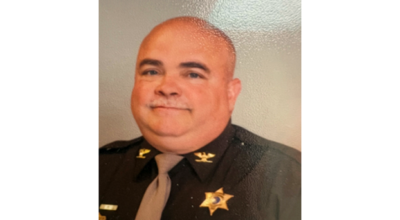Moroz, Miller face off in 59th District debate
Published 8:53 am Wednesday, October 15, 2014
The two candidates vying for Matt Lori’s seat in the Michigan House of Representatives in November went head-to-head on Monday night, disagreeing on healthcare, prisons, right-to-work laws and other hot button issues.
Republican Aaron Miller, of Sturgis, and Democrat Mike Moroz, of Dowagiac, answered questions from both the moderator and the audience for over an hour, inside the Fred L. Mathews Library on the campus of Southwestern Michigan College. Over 50 people attended the debate, which was sponsored by the League of Women Voters of Berrien and Cass Counties.
Both men are running for the 59th District seat, which covers all of
St. Joseph County and a portion of Cass, including the City of Dowagiac and the Village of Cassopolis. Republican incumbent Lori will be stepping down from the position due to term limitations.
Miller, a mathematics teacher at Northridge High School in Middlebury, Indiana, is a newcomer to the world of Michigan politics. The 27-year-old upstart defeated three other candidates to secure the Republican nomination during the primary election in August.
“I’m running because I believe that a small difference can be made by one person,” Miller said during his opening remarks that evening. “Too often nowadays, people believe that our country is too far gone to even make a difference anymore. So many people have given up on our nation, given up on our state, given up on politics.”
Moroz, on the other hand, has several years of campaign experience under his belt, including running against Lori for the 59th seat in 2012. The small business owner and president of the Underground Railroad Society of Cass County ran unopposed for this year’s Democratic nomination in August.
“When I ran for this seat two years ago, I saw an effort to drastically change the State of Michigan,” Moroz said. “I warned that if voters continued to vote against their own best interest, based solely along party lines or based off a single issue, we were destined to head in the wrong direction. One party controls the entire state, and I believe it’s time to bring balance back to the state legislature.”
Eighteen questions were posed to the two men, ranging from their thoughts on universal background checks for gun purchases to expansion of privatization of public services. As to be expected from their divergent political views and backgrounds, the two had radically different views on several of the topics.
No issue was more divisive between the candidates than when they were asked their opinion on Michigan’s Right to Work law, which prohibits organizations from mandating labor union membership as a condition of employment. Miller said the law benefited the state economy, citing studies from the U.S. Department of Labor that showed states with such legislation on the books had twice the rate of employment growth.
“Opponents call it the right to work for less, but the income levels that have increased in right to work states, not just in Michigan, speak for themselves,” Miller said. “Income has gone up.”
Moroz was armed with his own set of statistics to refute Miller’s claims. Using information from the U.S. Bureau of the Census, saying that not only is average income higher in states with free bargaining clauses, but also they have lower poverty levels.
“Businesses don’t want to come to a state with this type of divisiveness among labor,” Moroz said.
When it came to two issues close to local voter’s hearts, job creation and roads, the candidates shared a similar outlook — that the two issues were closely intertwined. “Michigan roads are the worst I’ve ever seen, and Michigan used to have the best roads in the country,” Moroz said. “Businesses aren’t attracted to Michigan because these roads.”
Miller too, suggested that lawmakers address the state’s ailing roadways using funds from the Michigan gas taxes to cover repair expenses.
“Roads and transportation are probably number one for business,” he said. “Everything else comes after.”
While much of the night’s questions focused on spending, education and similar subjects, the candidates received a few inquires about where they fell with several societal topics, including same-sex marriages. When asked for his views on that particular subject, Miller said that, while he personally believed that marriage should be kept between a man and a woman, the decision should ultimately be made at the state level.
“Massachusetts has said that they want [same sex marriage]. They should have it,” Miller said. “Michigan, the public, has decided that marriage should be between one man and one woman. That is their decision, it’s a public decision, and that’s the way it should stand.”
His opponent, on the other hand, said that Michigan has an obligation to repeal the aforementioned legislation, that gay and lesbian couples should enjoy the same marriage rights as others.
“We are either going to be an inclusive society or an exclusionary society,” Moroz said. “We realized and learned that over the past 200 years, that being an exclusionary country just does not work.”
At the end of the night, the Democrat reiterated his request that the district’s voters look past the letter next his name, and vote based on his years of experience, both in the business world and with serving his community.
“I know the challenges of being a member of the hard working middle [class],” Moroz said. “I’m committed to making our system fair for everyone.”
Miller, in his closing statement for the evening, told the audience that he will work hard for only one group of people if he is given the chance to work in Lansing: the people of the 59th District. The Republican said he will ignore the pressures of special interest groups, pointing to his campaign pledge to refuse campaign contributions from such organizations.
“Rather than just being on the convenient path, I’d rather be on the right path,” Miller said.








